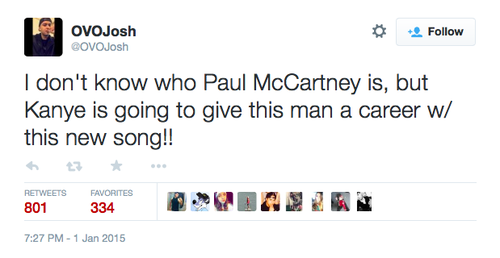 Artists often ask me questions about copyright, royalties and ownership with respect to songwriting. If you haven’t taken the time to understand your rights as songwriters and recording artists, this can be territory rife with pitfalls and broken dreams.
Artists often ask me questions about copyright, royalties and ownership with respect to songwriting. If you haven’t taken the time to understand your rights as songwriters and recording artists, this can be territory rife with pitfalls and broken dreams.
That said, help is at hand.
Just a little education can provide protection against royalty disputes, copyright infringements and band member fallouts.
On the plus side, it can provide new streams of income for songwriters and artists. I’m amazed how many songwriters are not collecting well earned royalties, something which can be organised with minimal effort – just some basic knowledge of the business side of the industry.
Copyright
Copyrighting your song is easy. In Australia and most other countries, copyright protection happens automatically. There is no registration; as soon as you write lyrics or music, or record it to any medium — analogue or digital — it will be protected by copyright. Whilst copyright disputes are rare in the industry (keep in mind this is different to royalty disputes), copyright can easily be proved through early drafts of your music, demos and the testimony of those present when the song was created.
Just to be clear, your work is copyrighted regardless of whether or not you display the © logo on your cover art or website, although it is still recommended to show who owns the work.
Collaboration and co-writing
Collaboration between artists is common. Just look at the credits of most recording artists getting airplay. Even solo artists often collaborate with producers and other songwriters when recording their music.
If you are the sole songwriter of your music and you self-produce and publish your material — well, power to you! You are are the sole copyright holder of your work.
However if you, like most musicians, collaborate with other songwriters, it’s VERY important to have an open and honest discussion with all parties BEFORE you begin writing.
I’ll get to the pitfalls of not doing this and how to address them.
Collective work
 Under the Australian Copyright Act, the owner of copyright for a musical work is the composer. The owner of copyright for lyrics is the lyricist. If two people collaborate in this fashion it’s called a collective work. This means each party maintains ownership and control over their respective parts.
Under the Australian Copyright Act, the owner of copyright for a musical work is the composer. The owner of copyright for lyrics is the lyricist. If two people collaborate in this fashion it’s called a collective work. This means each party maintains ownership and control over their respective parts.
The song exists as a collaboration. However, the individual parts can be used and reproduced by their respective owners for whatever purpose they like.
Joint work
What happens when multiple musicians collaborate on a track? Sometimes the lines are blurred on who wrote what, when creating a musical work. If you’re in a band, quite often members will contribute to each others parts, making it difficult to separate copyright ownership. If no agreement is made between the members before writing commences, then this composition is considered a joint work and the royalties are distributed equally between songwriters.
Sharing income
Sharing income between co-writers is simple when there is no prior agreement; the law in Australia generally assumes equal splits between co-writers, between two people it’s a half share, between three it’s thirds, and so on.
Of course, these shares can be split any which way you like, but it’s important that these terms are agreed upon prior to songwriting. To avoid disputes, I can’t stress enough how important it is to have open and honest discussions about each person’s role in a project and to be clear about how the song’s income will be split.
Royalties
Once copyright ownership and income splits are worked out, there are a variety of royalties available to artists depending on how they conduct business in the industry. The royalties that most people are aware of are those from radio and television broadcast. However, there are a variety of other royalty streams an artist can take advantage of simply by becoming a member of APRA/AMCOS and registering their works on its database.
APRA / AMCOS
“APRA AMCOS has 87,000+ members who are songwriters, composers and music publishers. We license organisations to play, perform, copy, record or make available our members’ music, and we distribute the royalties to our members.”
www.apraamcos.com.au
APRA is the Australasian Performing Rights Association. It is the peak body responsible for collecting royalties for the performance and communication of music over a variety of platforms.
APRA holds licence agreements and collects royalties from radio and television stations, pay TV, paid internet streaming platforms, nightclubs, pubs, fitness centres, cinemas, live concerts and festivals as well as other businesses that provide music to their customers.
If your music is performed in public, for example at a bar, nightclub, festival, or broadcast on radio or TV, you are entitled to royalty payments. This is because the Copyright Act gives writers performing rights which cover the use of their music and allow APRA to collect and distribute royalties on their behalf.
AMCOS is the Australasian Mechanical Copyright Owners Society. The organisation collects and distributes “mechanical royalties”, that is, the royalties generated by the reproduction and copying of music over a range of formats. AMCOS can in most cases, collect royalties from the sales of your physical and digital media as well as royalties from any cover versions that are subsequently produced.
Alright! Where do I sign?
APRA/AMCOS is one organisation, so membership is easy and integrated. Once you are a member of APRA/AMCOS (which is free) and register your songs on their database, then you can begin to collect performance royalties from any shows and gigs you perform, as well as from radio and TV broadcasts and plays from digital media streaming platforms such as Spotifiy and Youtube.
Click here to become a member of APRA/AMCOS
Dispute resolution
Sometimes disputes arise when a clear agreement is not communicated from the beginning. I have written melodies, lyrics, played guitar and bass parts for many artists I’ve produced over the years and occasionally there can be issues with royalty splits.
Generally in these situations diplomacy rules the day, but if communication has all but broken down, APRA has created what’s called an Alternative Dispute Resolution system to help members and publishers. If you are facing dispute, you can find out more info at the Resolution Pathways website.
Communication is key
If song royalties are to be split in a specific way, then write out an agreement between the members on what these shares are to be. An oral agreement is enforceable in Australia, however if you have something in writing then everyone is on the same page (literally!) and lapses in memory can be easily rectified. Agreement on the details before you start can prevent misunderstanding and in some cases, preserve working and personal relationships!
Stop, Collaborate and Listen!
The key message here is — work out the business end first and you will have happy, constructive collaborations and get paid fairly. Taking the time to communicate your goals and working out everyone’s role in a collaborative environment is essential in creating long-lasting, successful songwriting relationships. And let’s face it, getting the bureaucracy out of the way at the start can allow a free space for creativity to flourish unhindered.
So. . . start smashing out those tunes!
No Comments